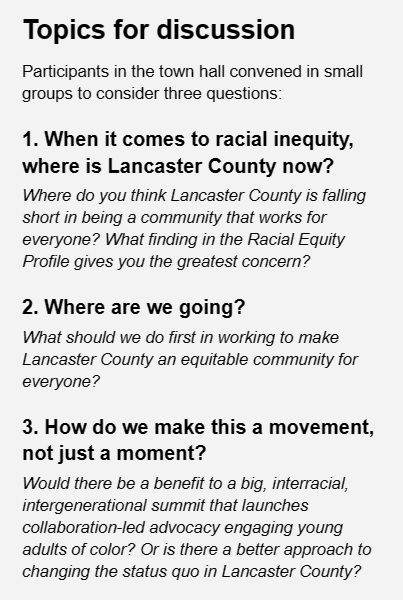“You are all a part of history,” John Maina said Saturday morning.
Maina was speaking to around 100 community members gathered at the Multipurpose Activity Center at Thaddeus Stevens College of Technology for “Together We Can: A Townhall on Targeting Hidden Injustice.”
The event was organized by the Lancaster Justice Seekers Collective, which is trying to mobilize energy around social justice and produce lasting change.
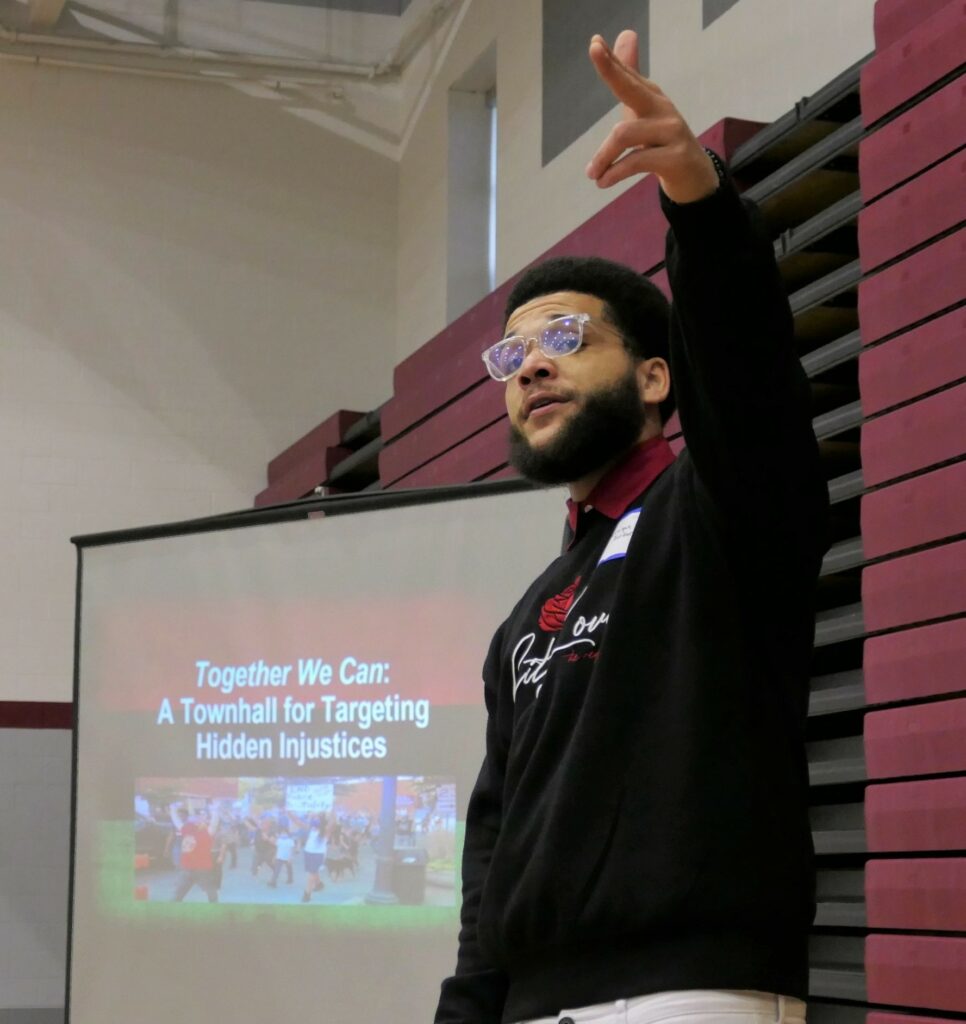
That energy was evident in 2020, Maina said: The Black Lives Matter movement sparked by George Floyd’s murder was powerful.
Yet by 2021 it had lost momentum, he said. That prompted the collective’s members to come together to figure out how to continue to mobilize.
Specifically, they want to involve young people of color, potentially by organizing a large-scale summit featuring a nationally known figure.
“Today is our first step,” Maina said — enlisting members of the community and hearing from them what their priorities are. Their responses will be assessed at a follow-up meeting this coming Saturday.
What’s next?
Lancaster Justice Seekers Collective is following up its town hall with a meeting from 10 a.m. to noon Saturday, March 25, at Community Mennonite Church of Lancaster, 328 W. Orange St., Lancaster.
Everyone is welcome. Participants will review the input gathered at the March 18 town hall “and dig into the details of growing a movement to make Lancaster County a community that works for everyone,” the collective said.
To contact the organizers, email hiddeninjusticeslanc@gmail.com.
Interspersed with spoken-word pieces by emcee Sir Dominique Jordan, local leaders provided briefings on the issues at hand and some of the local work addressing them.
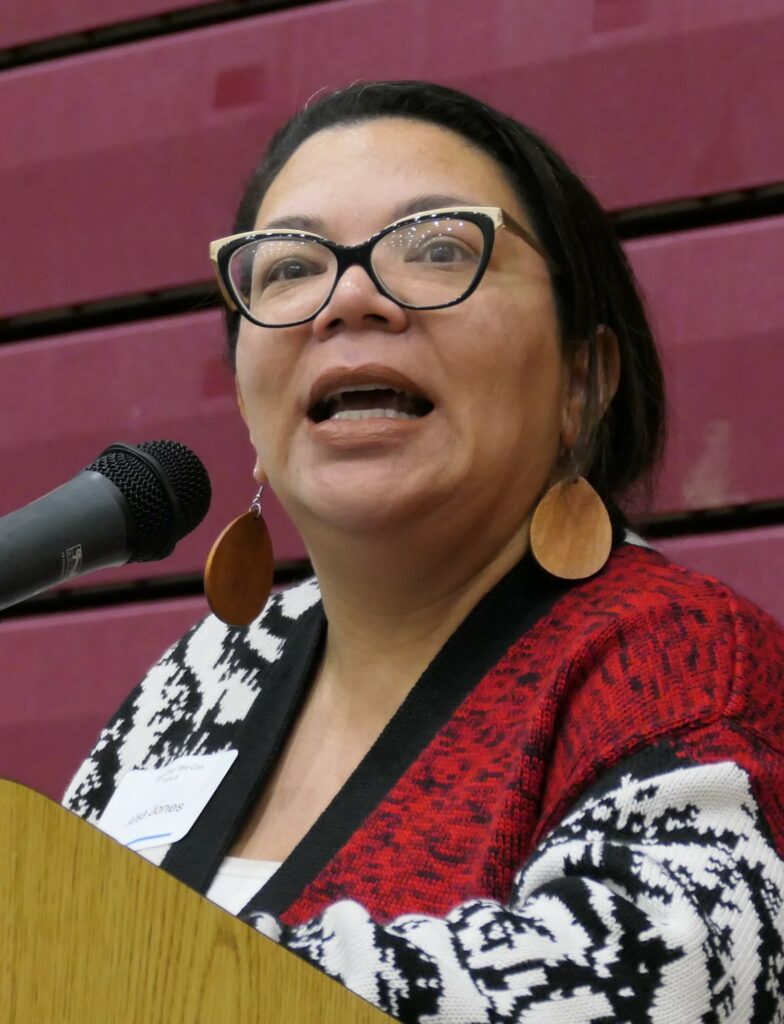
Alisa Jones, president of Union Community Care, gave an overview of the Lancaster Racial Equity Profile. She focused on the economic data, which shows among other things that child poverty rate among Black and Latino county households is more than three times that among Whites.
“Income creates equity,” Jones said. Over the past 40 years, however, income inequality has increased, both nationally and locally. “We are growing in the wrong direction. … This should concern us,” she said.
NAACP Lancaster branch President Blanding Watson gave an overview of his organization’s work. Alice Yoder, executive director of community health at Penn Medicine Lancaster General Health and a Democratic candidate for Lancaster County commissioner, told the audience that the only way to make sustained systemic change is through collaboration.
She offered two local examples: The Lancaster County Children’s Alliance, which serves victims of child abuse; and Joining Forces, formed to combat the opioid epidemic.
“Together we are greater than the sum of our parts,” she said.
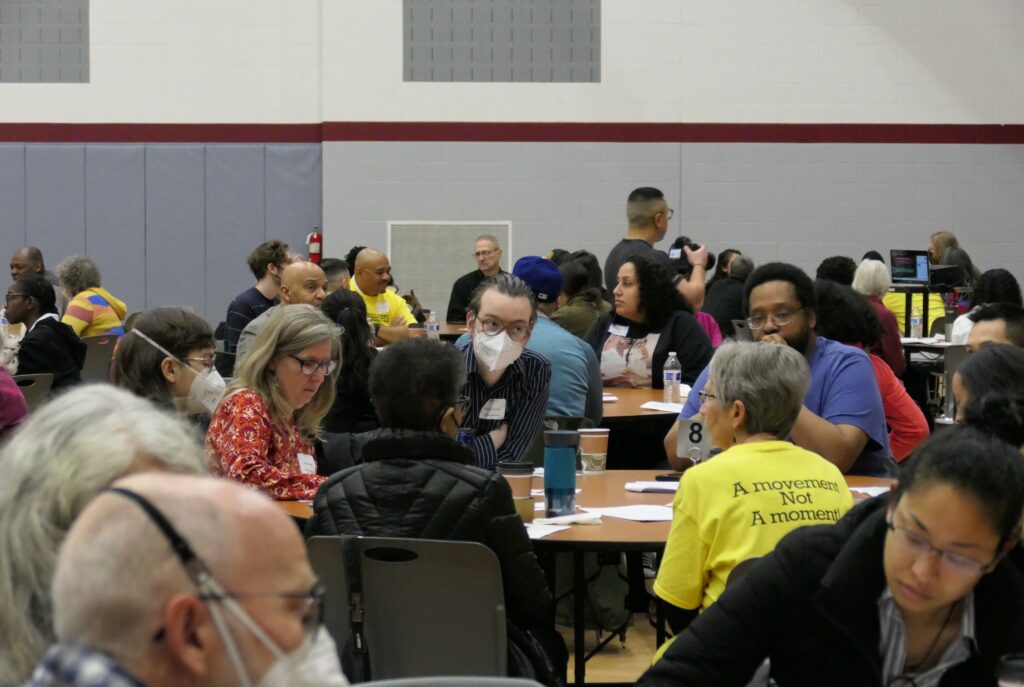
The presenters then stood aside and asked the attendees to do their part: Engaging in facilitated discussions around three questions around racial equity.
Responses were posted on the wall, and participants could post stickers on the ones that jumped out to them.
Among the themes that resonated: Education, pay and housing inequity. An admonition to “Own Our History — acknowledge our disparities” drew numerous stickers, as did a call to make it possible for people who usually aren’t afforded a voice to participate in the conversation, offering stipends or childcare if need be.
Respondents cited a need to shift political power and to “scaffold” initiatives so that each builds on the next.
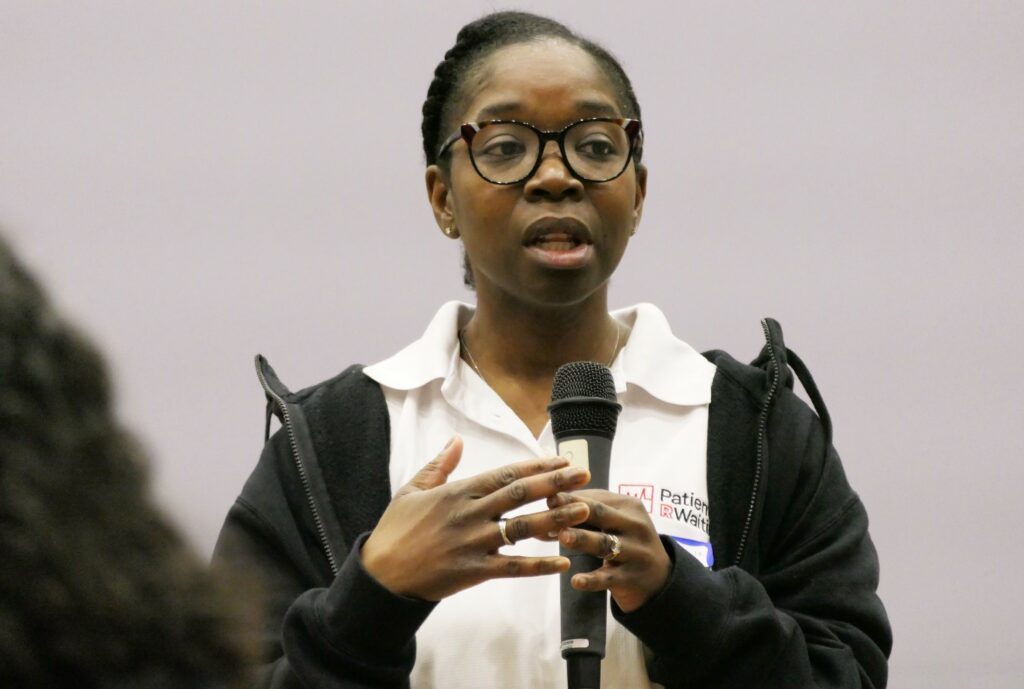
In an “open mic” segment that followed, audience members expanded on those points.
Dr. Cherise Hamblin, founder of the nonprofit Patients R Waiting, said she wanted those in attendance to put their words into action.
“Operate in your sphere of influence, make a difference and center Black people in decisions that you’re making, if you actually want to see something change,” she said.
Towahna Rhim, who works in diversity, equity and inclusion administration at LG Health, said marginalized people weren’t the only ones missing at the town hall: So were “C suite” leaders, the people with the power to make a difference.
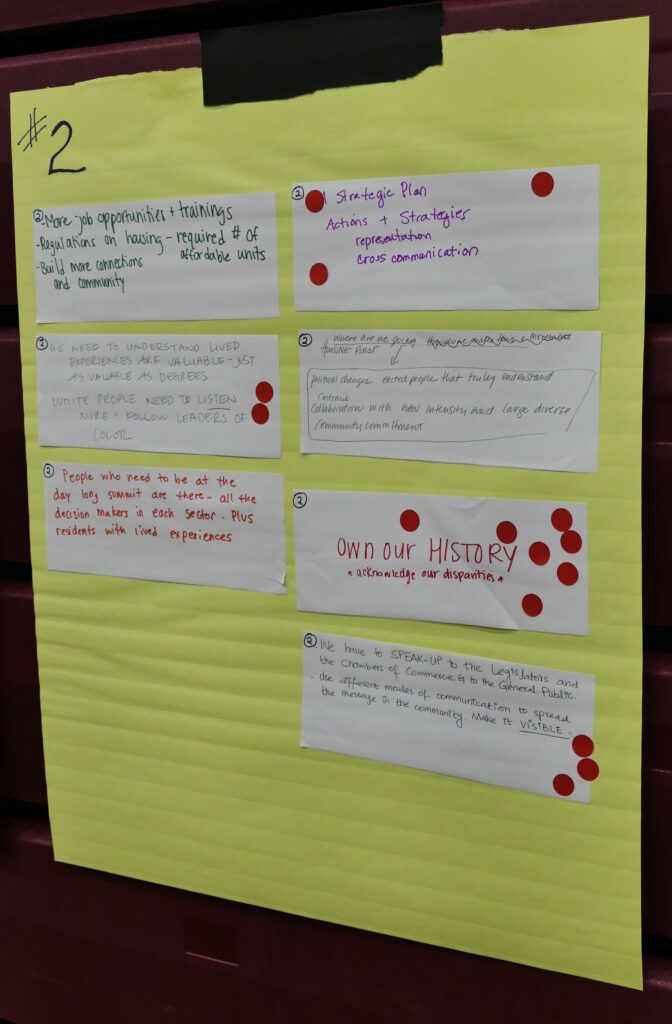
“We get them to the table by making it psychologically safe for them to be here,” she said.
People need to be prepared to be uncomfortable, Sophie Xiong said: “If you’re defensive, you’re not learning.”
Avara Thompson offered a metaphor: When she and her children tried playing the game Sorry! by the rules, it wasn’t fun, even though having fun was the point. So she changed the rules.
Jordan Wormley said he’s tired of just talking: “How do we stop just meeting like this?” he asked. “How do we go from talking to doing?”
Speaking after the town hall, Maina pronounced it a success. It had created a safe environment that allowed residents to talk about their concerns. Next Saturday, those concerns will be reviewed, discussed and turned into a plan of action.
“We will continue as a collective to listen to our community,” he said.

